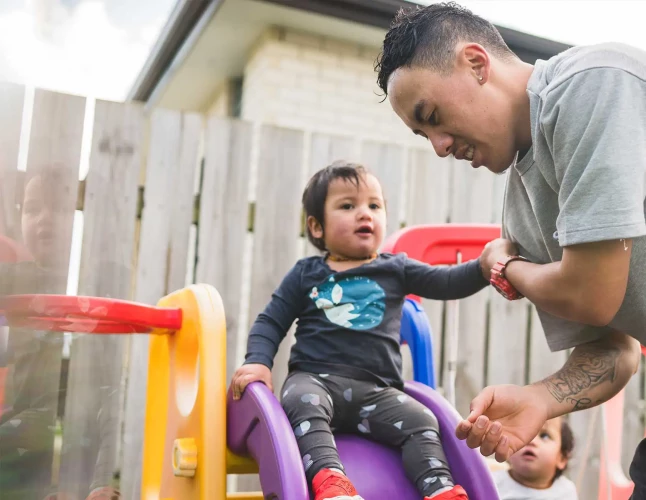
Tautāwhi taiohi Supporting young parents

Becoming a parent is a challenge and our young parents experience this differently because they are also going through their own emotional and physical journeys.
Becoming a parent at any age has it's challenges, and often young parents experience their own physical and emotional changes, as they become parents. Don't stress, young parents are full of energy and resilience, they often just need a bit more support.
Some young parents may be choosing to continue their education or mahi while parenting and this can keep them connected to friends and colleagues who can support them and offer help. Teen parent units are a great way to stay in school while getting that support you need for baby.
Navigating from child to parenthood
Young parents often find it difficult to navigate the change from child to parent, and many still live at home with whānau, which brings it's own challenges. It's important to come together with the pēpi at the heart of all your conversations and planning.
What surprises some parents is that we find ourselves parenting in the same way as our own parents did. We end up doing things to our own children that were done to us, even though we didn’t like it when we were children. When parents have made sense of the way they were parented, they’re able to parent differently and make ‘conscious’ parenting decisions for their whānau.
Things to think about
How might we parent this child together as an extended whānau? Think about what kind of parent you want to be and work together to find a style that is consistent for baby. This is called conscious parenting.
Find out more about conscious parenting
Young parents have big hopes and dreams for their tamariki, like any other parents. You can help them by giving them good information, listening to their views and helping them identify who is there to help with support.
Te hinengaro mīharo
Something to keep in mind for working with young parents, is that their brains are still developing and growing, while going through the transitions of parenthood. Adolescence is a time when peers are very influential. Staying connected with their mates is important to young parents, and so is making sure their mates are safe and supportive of the life changes that are happening. Our rangatahi have a lot to offer, so it's important we work in a way which highlights their strengths, to build confident parents.



























